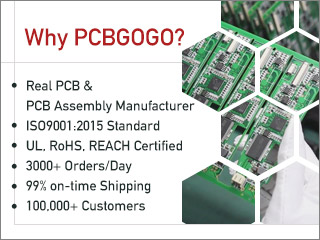The aerospace industry imposes exceptionally stringent demands on electronic equipment. As a core component, PCBA (Printed Circuit Board Assembly) must meet a range of specialized process requirements to ensure stable and reliable performance under extreme environmental conditions such as high and low temperatures, strong radiation, and intense vibration. This article delves into the unique process requirements for aerospace PCBA and shares relevant insights and experience.
First and foremost, material selection for aerospace PCBA is highly rigorous. PCB substrates must exhibit excellent thermal resistance, chemical resistance, dielectric performance, and mechanical strength. High-temperature materials such as polyimide (PI) and cyanate ester (CE) are commonly used in aerospace PCBA. Additionally, components must undergo strict screening and testing to ensure reliability and stability under harsh conditions. PCBGOGO has accumulated extensive experience in material selection through collaboration with aerospace clients, allowing them to recommend the most suitable PCB substrates and components based on specific application environments and performance requirements.
Secondly, soldering processes for aerospace PCBA are held to exceptionally high standards. Because aerospace electronics must often operate in fluctuating temperature environments, solder joints must be highly reliable to prevent defects such as cold or false soldering. Common soldering techniques include wave soldering, reflow soldering, and selective wave soldering. Among these, reflow soldering is widely used in aerospace applications due to its localized heating and precise temperature control. However, reflow parameters must be optimized based on the specific PCB substrate, component types, and solder paste composition to ensure soldering quality. PCBGOGO’s extensive experience in soldering processes enables them to develop the optimal soldering solution tailored to each customer's unique needs.
In addition, aerospace PCBA requires a variety of special surface treatments and protective measures. To improve corrosion and oxidation resistance, surface finishes such as Electroless Nickel Immersion Gold (ENIG) and Electroplated Nickel Gold (ENEPIG) are commonly used. To enhance thermal resistance and mechanical strength, protective techniques such as polyimide (PI) conformal coatings or silicone potting can be applied. These specialized treatments significantly enhance PCBA reliability and lifespan, ensuring stable performance in extreme environments.
Finally, aerospace PCBA must undergo comprehensive testing and verification. This includes environmental tests (such as thermal cycling, temperature shock, vibration, and impact testing), electrical performance tests (such as flying probe and fixture-based testing), and reliability testing (such as life testing and accelerated aging). These assessments provide a thorough evaluation of PCBA performance and reliability, ensuring compliance with the demanding standards of the aerospace industry. PCBGOGO is equipped with advanced testing facilities to deliver professional and thorough testing services for its customers.
In summary, the specialized process requirements of aerospace PCBA span material selection, soldering techniques, surface treatment, protective measures, and rigorous testing. Only by strictly adhering to these standards and continuously innovating and refining manufacturing processes can PCBA products meet the high demands of aerospace applications.

